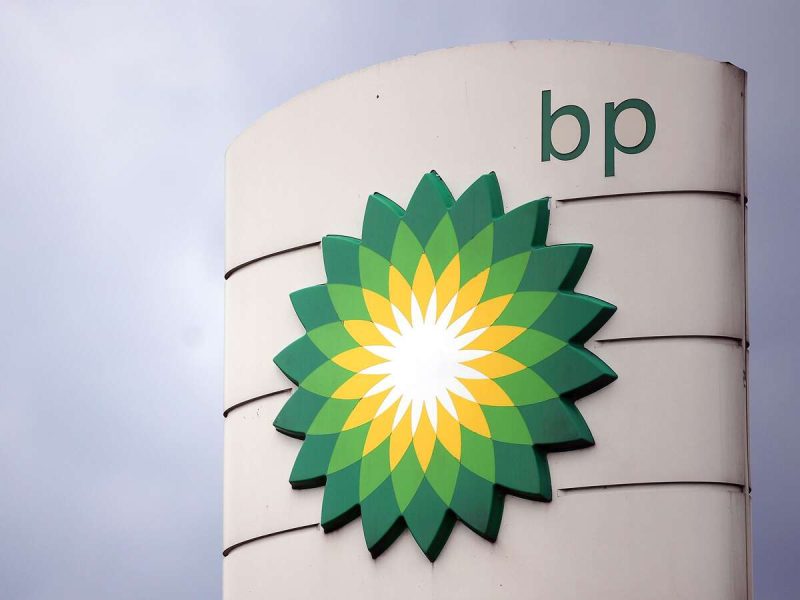BP weighs on the FTSE100
Truth be told October has been a bit of horror show for equity markets, with the DAX, CAC 40 and FTSE100 all lower by more than 3%, although this month’s losses aren’t exactly unique this year given, we’ve seen similarly sized declines at various points throughout 2023. The only difference being that the bulk of the losses in the DAX have come in the last 3-months.
Europe
It’s been slightly better for the S&P500 but not by much, while US long term rates have edged quite a bit higher, tightening financial conditions quite sharply over the last 30-days.
As far as today is concerned the FTSE100 is underperforming again with BP and Shell acting as the biggest drags after BP reported a big miss on its Q3 profit numbers, with underlying replacement cost profit coming in at $3.3bn, falling well short of expectations of $4.05bn. The underperformance appears to have come from its gas and low carbon energy division where profits were lower compared to Q2 at $1.25bn, while oil production and operations saw an increase from Q2, coming in at $3.13bn, although both numbers were sharply lower from the levels last year due to lower oil and gas prices.
In a carbon copy of Q2 BP took the decision to try and sweeten today’s disappointment by announcing another $1.5bn buyback, while announcing a dividend of 7.27c a share, however on this occasion the move has done little to mollify shareholders.
While the company appears to be continuing its so called “Performing while Transforming” strategy there appears to be an increasing concern that the current strategy is neither transforming nor performing at a time when its US peers Chevron and Exxon are pulling ahead, and its UK counterpart Shell’s shares recently hit new record highs. Hopefully, a new CEO can help resolve what appears to be the uncertainty at the top of the business.
Vodafone is also lower despite the announcement it has agreed a deal to sell its Spanish business to Zegona for €5bn, as newish CEO Margherita Della Valle looks to right size the business as well as reduce its debt levels.
Helping to lift the FTSE100, Rolls-Royce shares are higher after being upgraded at Barclays.
We’re seeing a positive performance from some UK retailers today after shop price inflation in the UK slowed further in October, coming in at 5.2%, down from 6.2% in September. Food price inflation remains at elevated levels, slowing to 8.3% from 9.6%, still very high but at least its heading in the right direction. Non-food prices are slowing at a faster rate, slipping to 3.4% in October, which may help explain why we’re seeing modest gains in the likes of Kingfisher, B&M European Retail, Associated British Foods, and M&S.
US
US markets look set to finish a negative month on a relatively subdued note, after Chicago PMI came in below expectations in October, and US consumer confidence slowed to 102.60.
As far as earnings is concerned, we’ve seen another mixed bag, with another beat in the social networking space after Pinterest reported an 11% rise in Q3 revenues to $763.2m, while profits also beat forecasts at 28c a share, sending the shares to 3-month highs. Monthly active users rose 8.2% to 482m, while revenue per user jumped 3.2% to $1.61c. For Q4 Pinterest said it expects to see an 11% to 13% increase in revenue, while operating expenses are expected to decline by around 10%.
Industrial machinery manufacturer Caterpillar shares have slipped to 5-month lows despite beating on both Q3 revenues and profits. The company benefited from higher prices and strong sales in recording revenues of $16.8bn, and profits of 5.52c a share, however a rise in inventories would appear to suggest that demand is starting to slow and that orders may start to slow heading into Q4.
Pfizer shares have slipped back to their lowest levels since March 2020 after reporting a loss of 0.17c a share for Q3 on revenues of $13.23bn, which was slightly below expectations. The company reaffirmed its lower guidance of a couple of weeks ago of full year EPS of between $1.45 and $1.65c a share.
FX
The Japanese yen has been splattered after the Bank of Japan procrastinated when it came to its yield curve control policy, simply moving it into line with its commitment to buy 10-year JGBs up to a yield of 1%. This move was much more dovish than had been expected given that the BoJ had been expected to go further after yesterday’s leaks from Nikkei that the central bank would be moving on its current policy settings. Today’s tentative tweak has come across as an open invitation for the market to test Japanese authorities resolve when it comes to the weakness of its currency.
We’ve already seen it fall to its lowest levels against the euro since 2008 and we could well see it take out last year’s US dollar peak of 151.95 in short order. If the BOJ wanted to be taken seriously when it comes to today’s policy change, they could hardly have done it in a more muddled fashion.
The euro is unchanged despite some poor economic numbers today, with EU Q3 GDP contracting by -0.1%, while headline inflation in October slowed more than expected to 2.9%, down sharply from 4.3% in September. Core CPI also slowed to 4.2%.
At this rate it won’t be long before markets start to price in rate cuts from the ECB, which could come as early as Q1 next year.
The US dollar has seen another positive month with most of the gains coming against the commodity currencies of the Norwegian krone, Canadian and Australian dollar. The Swiss franc has been the best performer in a sign that investors are seeking havens as we head towards year end.
Commodities
Given recent events in the Middle East, and the horrific events on October 7th and Israel’s aggressive response to them, you’d be forgiven for thinking that oil prices would be higher now than they were at the end of September.
That we aren’t higher is surprising given concerns that the conflict might spread beyond the skirmishes that we’re seeing between Hamas and Israeli forces and the exchanges of fire on the border with Lebanon. For now, the risks appear contained with oil prices only slightly above where they were at the start of the month, however, there remains a clear and present danger that the conflict might spread wider.
Gold has seen strong gains this month pushing up to 5-month highs last week and on course for its biggest monthly gain in 11 months as investors hedge themselves against further geopolitical instability, in what generally tends to be strong quarter for gold on a seasonal basis.
Volatility.
Tesla was a stand-out stock in terms of price action on Monday, slipping in the wake of news from battery partner Panasonic that demand for electric vehicles was looking sluggish. That was sufficient to take 5% off the share price with cumulative gains now exceeding 20% for the month. One day vol advanced to 103.04% against 73.86% for the month.
UK banking stocks remain an active trade with earnings from HSBC adding to the dynamic on Monday. That proved to be something of a mixed bag with profits well up year on year as a result of higher interest rates, but the print still fell short of analyst expectations. One day vol on CMC’s proprietary basket of banking stocks sat at 37.06% against 29.94% for the month.
Despite caution from the World Bank that oil prices could skyrocket if the situation in the Middle East worsens, Monday saw crude retreat further with West Texas Intermediate dropping back to levels not seen since the first half of the month. This remains a highly uncertain situation but for now downside pressures are dominating. One day vol on WTI Crude printed 37.39% against 35.67% for the month.
And in terms of fiat currencies, the Yen was the stand out. Speculation ahead of a Bank of Japan policy decision saw the US Dollar lose ground against the Yen at the start of trade on Wall Street. This related to amendments to the Yield Curve Control policy, although the actual announcement overnight evidently fell short of market expectations. One day von on dollar yen sat at 7.33% against 5.75% for the month.
Disclaimer: CMC Markets is an execution-only service provider. The material (whether or not it states any opinions) is for general information purposes only, and does not take into account your personal circumstances or objectives. Nothing in this material is (or should be considered to be) financial, investment or other advice on which reliance should be placed. No opinion given in the material constitutes a recommendation by CMC Markets or the author that any particular investment, security, transaction or investment strategy is suitable for any specific person. The material has not been prepared in accordance with legal requirements designed to promote the independence of investment research. Although we are not specifically prevented from dealing before providing this material, we do not seek to take advantage of the material prior to its dissemination.




